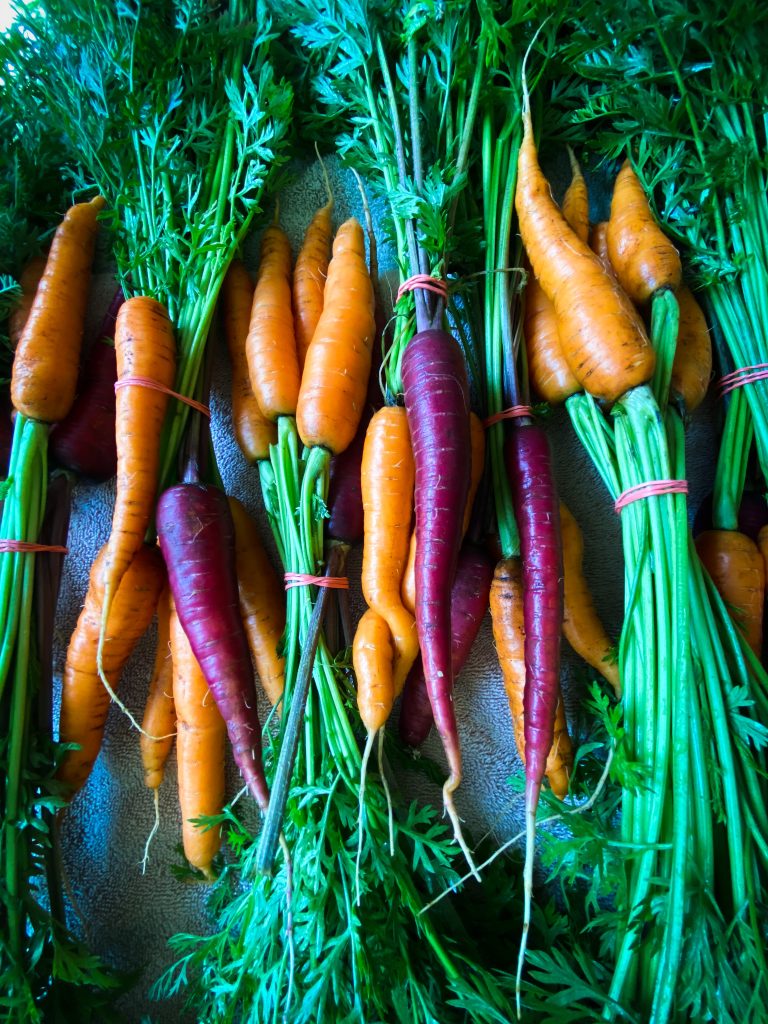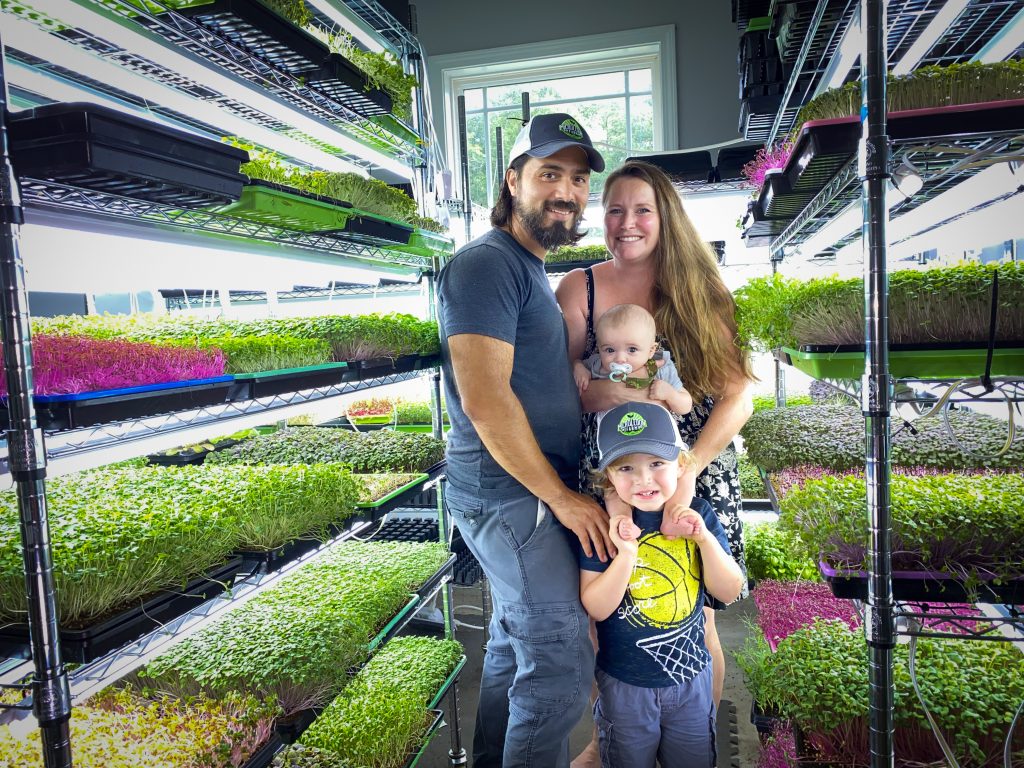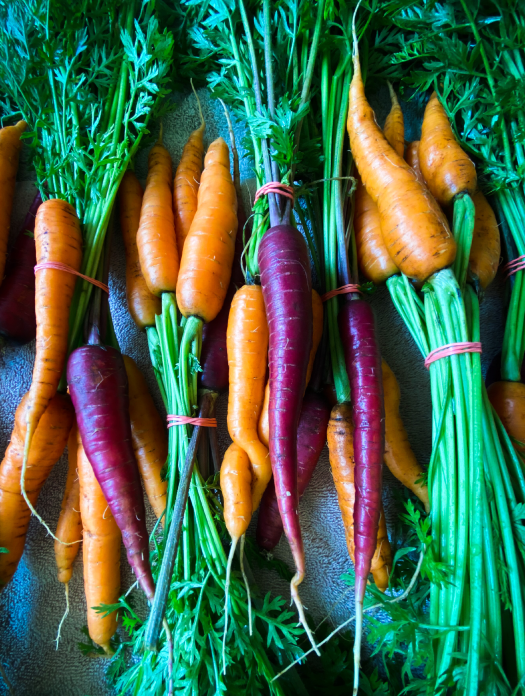Shaking the hand that feeds you
Written by Melissa Corbin / Photography Courtesy Microledon Farm
While it’s unclear why exactly the human species turned from hunting and gathering to agriculture, the art of nourishing our bodies with the very food that we raised brought a nomadic species together forming villages because they needed to stay close to the crops. In fact, agrarian life laid the actual foundation for civilization as we know it. In most modern times, the movement to shake the hands that feed us has grown with awareness and gratitude. While in Conway, South Carolina this summer, I found a community happily shaking the hand of such a maker – Oscar Chavez of Microledon Farm.
Chavez took a notion to farm when his wife, Michele, became pregnant with their son in 2017. He called it “Daddy nesting” – to grow the most regenerative food he could for his family. Yet, his nest would soon grow into a market garden for his community, and finally Microledon Farm was born.
Walking into Chavez’s grow room, I was immediately struck by the vibrant colors of microgreens. From the amaranth’s deep garnet glow to the bright green hues of varietals such as mustard, cabbage, and arugula, Chavez says there are 14 varieties growing in this small vertical space. Outside, an abundance of lettuces grows on the eighth of an acre plot. Each of their heads springing from the ground as pretty as any rosebud I could ever think of.
These combinations of flavors and colors blend much like a painter uses a palette to create their next masterpiece.” I love to see the color. I like to see the textures. We make our own custom mixes with the thought in mind of how it will look on a plate,” Chavez explains how he arrives at the blends is all about working with area chefs.
While microgreens are the farm’s focus, there’s nothing micro about the impact this small farm has on The Grand Strand’s culinary community. Working with upwards of 25 area chefs, Chavez is emphatic about the role they play in what he decides to grow and explains his model, “Since we’re such a small-scale farm, we really decided that instead of throwing out a shotgun blast of trying to grow everything, we just realized we’d focus on a certain few.”


Fairly new to this way of life, Chavez comes from a sales background and recognizes that farming forces him to wear many hats. “If you’re working on the farm, it’s not like you could get out and deliver all over the place too,” he explains why many farmers are reluctant to actually sell their own products. Yet, he dons the relationship-building hat whole-heartedly and values this role as crucial to his success, “A lot of the restaurants tell me ‘Man, we wish more farmers like you could come and just talk to us.’”
He may opt to expand in the future, but if not, collaborating with other farmers to bring awareness about locally grown food will be key. “I’m not trying to grow everything under the sun.
There are plenty of wonderful farmers out there that are really skilled at what they do. And I think if I can bring them in on this circle of people, we can build our community with awareness,” Chavez explains his hopes for the future.
While he says that about 85% of his produce goes to area restaurants, he also delivers to homes and enjoys his Saturdays at the Conway Farmers Market. He believes these relationships are symbiotic in that you’re “not only supporting local restaurants, but you’re also supporting other elements and cogs within the system like farmers, fishermen, and a bunch of other people that are making this happen.”
But the cogs that Chavez mentions all have one thing in common. Whether it’s farming the land or harvesting the sea, they all face their fair share of gambles. “It really all starts with having faith and putting that in God’s hands. That’s what farming is all about. You never know what’s going to happen. So, our main thing is to try to get back to the land that treats us well,” he says.
Just as he has started out small, Chavez gives the same advice to those who want to follow in his footsteps. And, when it comes to how you grow the food, energy is everything. Afterall, he says “the love you give the soil is a transfer of energy that goes into what people eat.” It seems that the old saying, “you are what you eat” takes on a whole new meaning when you think about it with the mindset of a farmer.
Chef Heidi Vokov is one of those Myrtle Beach chefs with whom Chavez has built a relationship through his produce. So much so that he’s growing produce varieties just for her restaurant, Hook and Barrel. She shares this recipe that features Microledon Farm greens.

